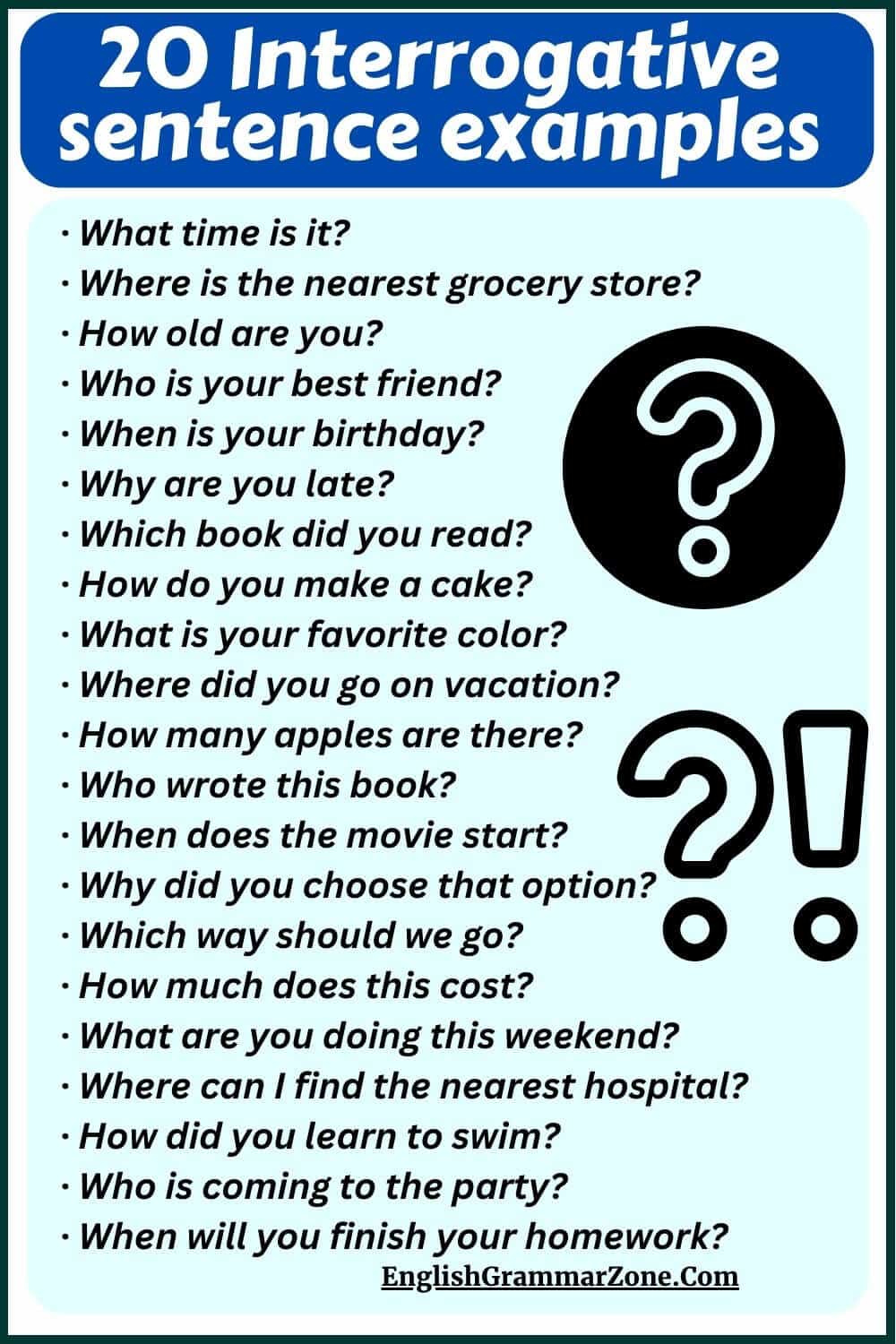Example of Imperative Sentence
Examples of imperative sentences are an essential part of everyday communication. They are used to give commands, make requests, offer invitations, or provide advice. Imperatives are direct statements that guide actions or instructions, making them easy to spot due to their straightforward tone and lack of a stated subject. Understanding imperative sentences can greatly improve both spoken and written communication skills. Here, we’ve compiled 40 imperative sentence examples to help you recognize and use them more effectively.

- Sit down.
- Stand up.
- Open the door.
- Close the door.
- Turn off the light.
- Turn on the light.
- Pick up the book.
- Put down the book.
- Clean the table.
- Wash your hands.
- Brush your teeth.
- Put away your toys.
- Take out the trash.
- Feed the dog.
- Water the plants.
- Open your book.
- Close your book.
- Write your name.
- Read the story.
- Do your homework.
- Help me.
- Listen carefully.
- Follow the rules.
- Draw a picture.
- Make a sandwich.
- Tie your shoes.
- Put on your coat.
- Take off your coat.
- Go to bed.
- Wake up.
- Come here.
- Go there.
- Turn the page.
- Say “please.”
- Say “thank you.”
- Ask a question.
- Be quiet.
- Sit in your seat.
- Stand in line.
- Look at the board.
- Raise your hand.
- Lower your hand.
- Start the game.
- Stop the game.
- Find your shoes.
- Put on your shoes.
- Take off your shoes.
- Get ready.
- Pack your bag.
- Open your eyes.
- Close your eyes.
- Smile.
- Frown.
- Relax.
- Finish your work.
- Start your work.
- Show me.
- Wait here.
- Come back.
- Go outside.
- Bring me that.
- Give me a hug.
- Wait your turn.
- Follow me.
- Listen to the music.
- Sing a song.
- Jump high.
- Run fast.
- Walk slowly.
- Count to ten.
- Ask for help.
- Share your toys.
- Be kind.
- Read aloud.
- Write clearly.
- Draw carefully.
- Turn off the TV.
- Turn on the TV.
- Turn down the volume.
- Turn up the volume.
- Check the time.
- Put it away.
- Take a nap.
- Take a break.
- Brush your hair.
- Wash the dishes.
- Dry the dishes.
- Set the table.
- Clear the table.
- Close the window.
- Open the window.
- Put the lid on.
- Take the lid off.
- Fix it.
- Move the chair.
- Adjust the chair.
- Pick up the trash.
- Put the trash away.
- Clean your room.
- Organize your desk.
- Prepare your lunch.
- Put on your gloves.
- Take off your gloves.
- Zip up your jacket.
- Unzip your jacket.
- Close the curtains.
- Open the curtains.
- Turn around.
- Look up.
- Look down.
- Turn left.
- Turn right.
- Stop talking.
- Start talking.
- Take a deep breath.
- Count to twenty.
- Keep quiet.
- Go to school
- Come home.
- Do not touch.
- Eat your food.
- Drink your water.
- Go to the park.
- Stay here.
- Listen to your teacher.
- Pay attention.
- Look at me.
- Follow the instructions.
- Write a sentence.
- Read a book.
- Sing loudly.
- Dance nicely.
- Watch the video.
- Put your phone away.
- Turn off the computer.
- Turn on the computer.
- Close your notebook.
- Open your notebook.
- Take out your pencil.
- Put away your pencil.
- Be careful.
- Stay safe.
- Follow the path.
- Cross the street.
- Stay on the sidewalk.
- Help your friend.
- Make your bed.
- Finish your meal.
- Put your things away.
- Do not worry.
FAQ:
- What is an imperative sentence?
An imperative sentence gives a command, request, suggestion, or instruction. It typically starts with a verb and often omits the subject, as it’s usually directed at you. - What is the structure of an imperative sentence?
Most imperative sentences begin with a verb and are in the base form. They often don’t include a subject since it’s implied, like in “Sit down” or “Please close the door.” - Can imperative sentences be polite?
Yes, imperative sentences can be made polite by adding words like please or kindly, “Please pass the salt.” - Are imperative sentences always commands?
Not always. They can also be requests, invitations, or advice such as “Have a seat,” “Try to relax,” or “Take care.” - Can an imperative sentence end with a question mark?
No, imperative sentences end with a period or an exclamation mark. However, requests can sometimes be phrased as polite questions, e.g., “Could you please sit down?”
Read More: